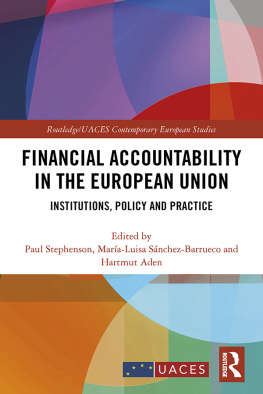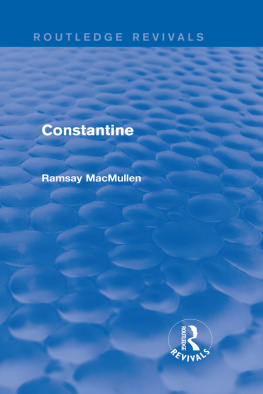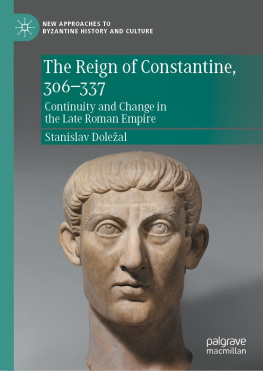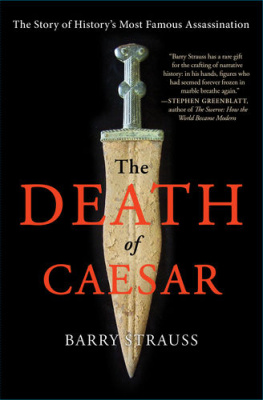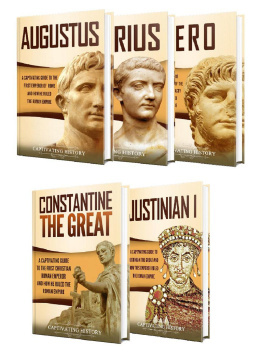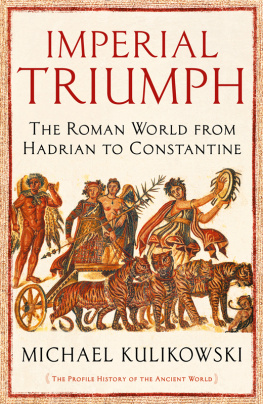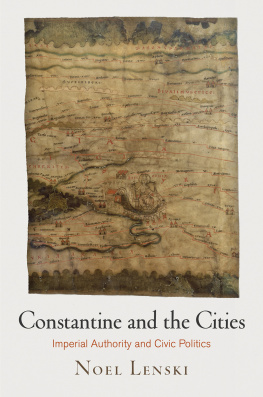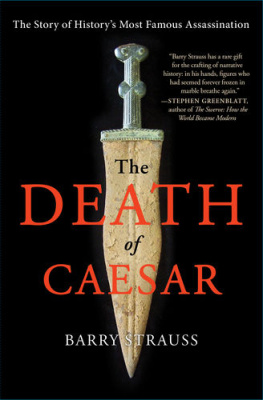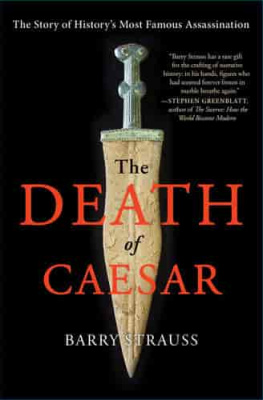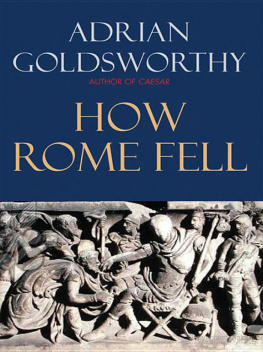This edition first published in hardcover in the United States in 2010 by
The Overlook Press, Peter Mayer Publishers, Inc.
141 Wooster Street
New York, NY 10012
www.overlookpress.com
Copyright 2009 by Paul Stephenson
All rights reserved. No part of this publication may be reproduced or transmitted in any form or by any means, electronic or mechanical, including photocopy, recording, or any information storage and retrieval system now known or to be invented, without permission in writing from the publisher, except by a reviewer who wishes to quote brief passages in connection with a review written for inclusion in a magazine, newspaper, or broadcast.
ISBN 978-1-46830-300-1
In a word, the historical scholar and quite specifically the medievalist, has a twofold duty: one to his own speciality, to his own chosen field of scholarship, where he can justifiably claim expertise, and the other to society which after all maintains him and which makes it possible for him to apply himself with singular zeal to his own research. But this duty to society makes it imperative for him to return to it the fruits of his own research work and learning by putting his specialist work into a broader perspective. In many instances he will do this all the better and with greater success if he tries to apply all his methods, techniques and topics to periods antecedent to and succeeding those which originally fired his research enthusiasm.
Walter Ullmann, The Future of Medieval History
Inaugural lecture in the University of Cambridge,
delivered 6 November 1973
Maps
third century
. The Tetrarchy in AD 293
. The empire of the Tetrarchs and Constantine: the twelve dioceses
. Constantines Italian campaign, AD 312
. The first war between Constantine and Licinius
. Byzantium (Constantinople) and its hinterland in AD 324
. Constantines Constantinople, with key later developments
. The imperial palace complex at Constantinople
Stemmata
. The relationships and families of the Tetrarchs
. The family of Constantine
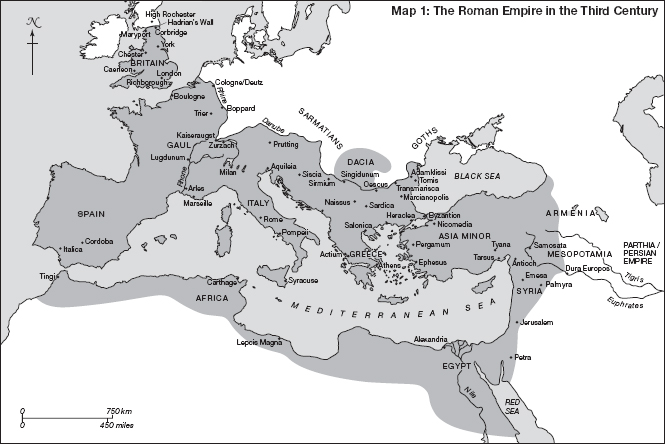
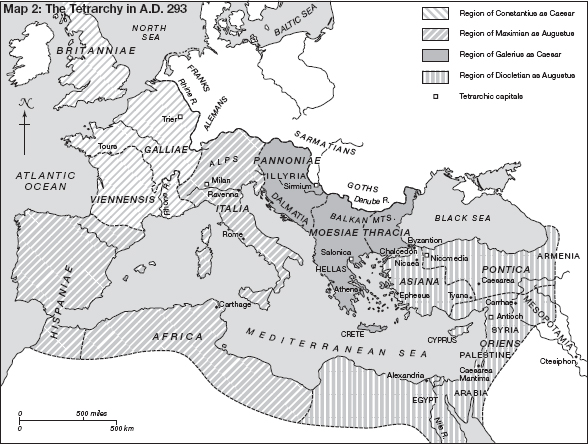
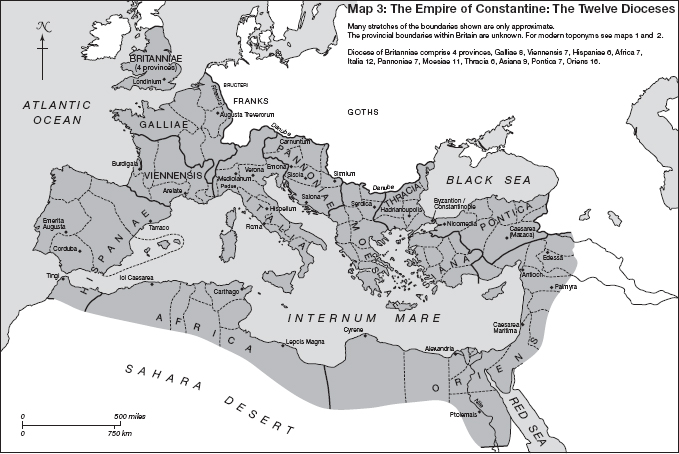
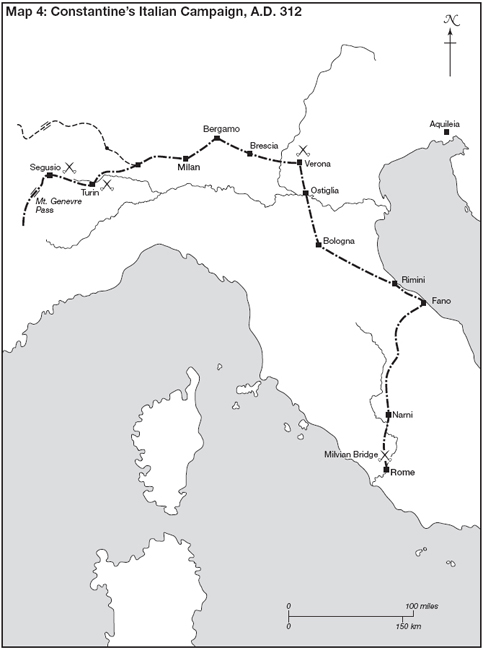
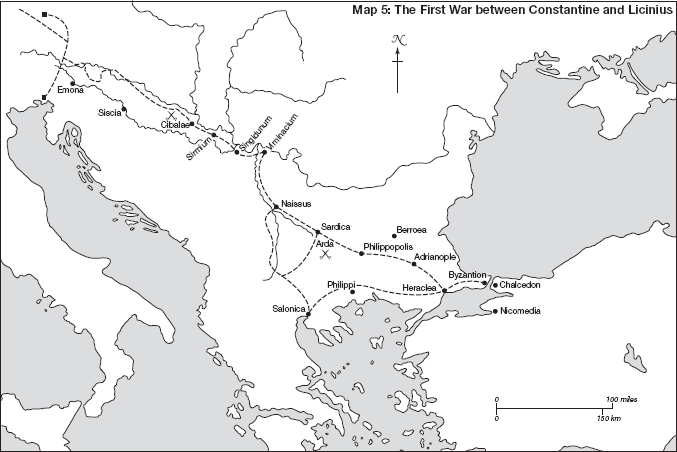
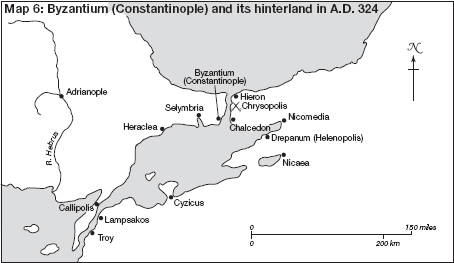
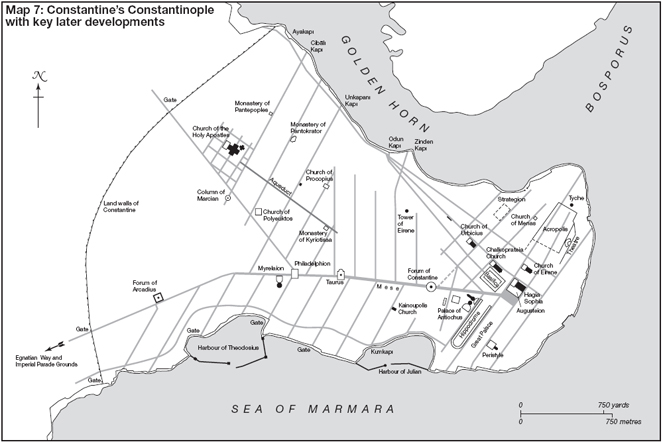
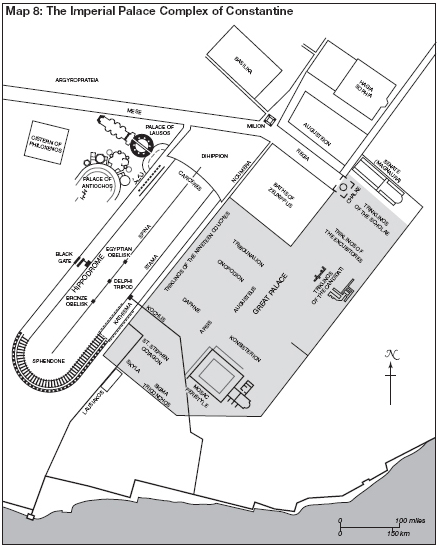
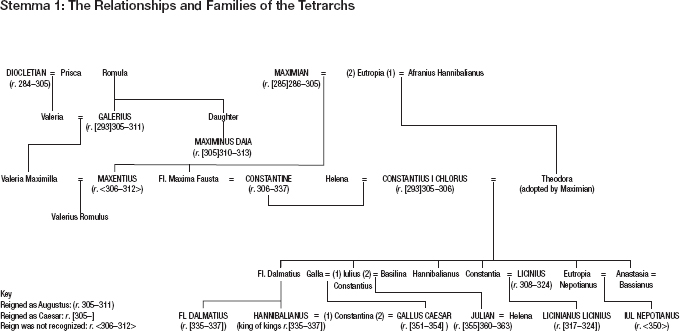
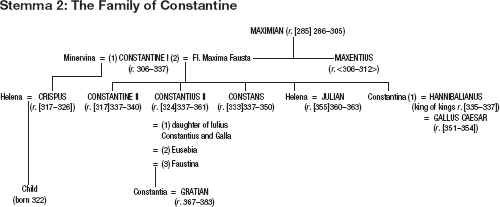
No life of Constantine is timeless, just as none will have the final word: from the first by Eusebius of Caesarea, so firmly rooted in the concerns of a bishop in the second fifth of the fourth century, to those written in the twentieth century. In 1930 G. P. Baker began his life of Constantine aboard an ocean liner, leaving behind the new skyscrapers of Manhattan to arrive nine days later at the docks of Liverpool. From there he took his reader on a full-day train ride across Lancashire and Yorkshire to old York, where in AD 306 Constantine became the latest Roman general to be acclaimed emperor by his troops. Each life betrays its moment of composition and the preoccupations of its author. Each is written, moreover, in awareness of much, but now never all, that has been said before. This life takes a perspective that complements many accounts and contradicts others that dominate the field in the first decade of the twenty-first century.
The bare bones of Constantines life are presented fairly consistently in his many biographies. Acclaimed in July 306 at York by a Roman legion following the death of his father, Emperor Constantius Chlorus, Constantine became a Tetrarch, one of four Roman emperors ruling a divided empire. Intent on unifying the empire, he marched on Rome to establish his sole control of its western half, and on the eve of the decisive battle, at Romes Milvian Bridge in October 312, he had a vision. A cross appeared to him in the sky with an exhortation, generally translated as By this sign conquer. Inscribing the cross on the shields of his soldiers, Constantine drove the followers of his imperial rival Maxentius into the Tiber and claimed the imperial capital for himself. His vision validated, Constantine converted to Christianity and ended persecution of his co-religionists with the defeat in 324 of his last rival, Licinius. Christianity thus emerged from the shadows, its adherents no longer persecuted, its heroes no longer martyred. At Licinius death, Constantine united the western and eastern halves of the Roman Empire, and presided over the first ecumenical council of the Christian Church, at Nicaea in 325. He proceeded to found a new capital city nearby on the Bosphorus, where Europe meets Asia. This site, the ancient trading colony of Byzantium, became the city of Constantine, Constantinople, a new Christian capital set apart from Romes pagan past. Thereafter the Christian Roman Empire endured in the east as Byzantium, while Rome itself fell to barbarian hordes in AD 476.
What more is there to say? A good deal, I shall argue in the following pages. I offer here a narrative of Constantines life in a broader context. I do so by design but also by default, since it is impossible to write a genuine biography of any pre-modern figure. The written sources do not exist or are partial; they have not been preserved or have been preserved by design; they have been altered or miscopied; they cannot simply be mined for data. The same applies to material and visual evidence, which should not be used simply to pad or colour a narrative, although it does so very well. I offer a thicker biography also by design since, as a rather traditional empirical historian, I have always enjoyed narrative. Equally, I have relished the full critical apparatus, which the academic historian employs to demonstrate how she reached her conclusions and how others might find the evidence with which to replicate or refute them. This work, then, a narrative without notes, is as much story as history. I have ventured to use far more imaginative recreation, entertained far more plausible inference, and deployed many fewer probablys and possiblys than I would have thought sensible or feasible if this work were intended solely for a scholarly audience. While I hope my colleagues will read it with forbearance, my greater wish is that the work will appeal to a wider readership. The book makes full use of the remains of the age of Constantine, dwelling on the places where he lived and on the buildings for which he was responsible.


